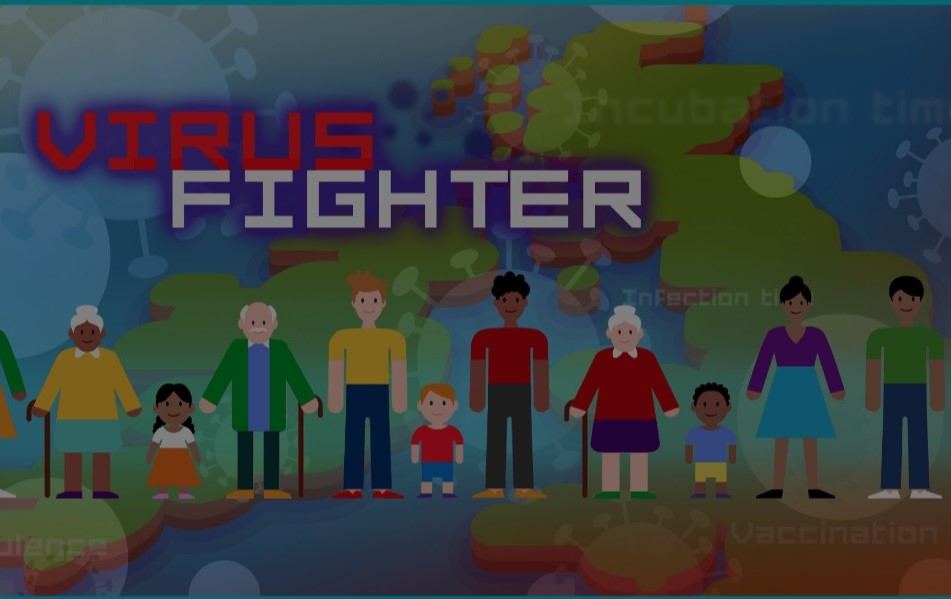Monday
Aug292016
Inbreeding in Flemish academia?
 Monday, August 29, 2016 at 10:01PM
Monday, August 29, 2016 at 10:01PM A newly released study of Flemish PhD graduates has found that fully 20% of Flemish PhD graduates go on to get a professorship in a Flemish university. This compares to perhaps 2% of American PhD graduates, so great news for the Flemish system, right?
I would argue the (unpopular) position that this is too high a rate of PhD to professorship transition. This is not to say that good PhD students shouldn't be given good jobs - just that most should find their niche outside academia. In my experience in the Flemish system, I would say perhaps half of PhD students really shine during their PhD (the system does not formally differentiate, but there are "good PhDs" and "average PhDs"). Many of these stars have talents that are not especially well aligned with remaining in academia - perhaps they are more interested in industry, law, journalism or the myriad of other jobs that a PhD is great training for. So the 20% figure is, to me, far to high. A 5-10% figure would be a good success rate based on my experience.
The other pertinent question is whether this system, with such a high success rate, produces the best outcome for Flemish science. Currently, 97% of all professors obtained their PhD in Belgium, and 75% even obtained their PhD at the same university! These are astronomical figures, especially for a tiny country with close neighbours that are also producing amazing PhD students. These numbers are not based on ancient history either, they are from the 2010 professorship appointments.
My point is not that Flemish universities are producing sub-par PhD students that should be replaced by foreigners. Far from it - we are producing some outstanding PhDs that should be snapped up for prime positions around the world! My point is instead that an institution that is based almost entirely on internal hiring is going to have severe intellectual inbreeding. One great unique thinker is worth a fortune - clone them a 100-fold and have them work together and you get diminishing returns. It also shuts out the brain circulation that you get when externally recruiting. I'd love to see a hundred Flemish PhDs go out into the world and spread their exciting ideas, and (simultaneously) a hundred foreign PhDs come in and bring their exciting ideas with them. It can happen for people who post-doc abroad instead, and truly creative people can be generated in any system, but the numbers are an indication of openness.
Another staggering statistic from this report: 40-50% of professors (appointed 2001-2013) obtained their professorship within 1-3 years of finishing their PhD! This is mind-blowing. A PhD is the entry point to the academic pathway, and in most countries there is a good 5-10 years of further training before you get a professorship. Also keep in mind that in most countries there is a tenure-track process, so you then have 5-7 years to prove your ability as a Professor before you get tenure. In Flanders for all intents and purposes there is immediate tenure. So we are taking new graduates, who would still be considered junior post-docs in the American system, and instantly granting them tenure before we know if they are good at the job, and before they know if they even enjoy it!
So that's the system Flemish universities are operating under. Lots of professorships, given out at a very early career stage. And who does it favour? The internal hire (especially those who did an FWO PhD at the same universities) over the external hire, and men (19%) over women (16%). Top candidates are plucked out at the undergraduate stage and ushered through the system. Almost the definition of a boy's club, wouldn't you say?
This is not to say that the whole university sector in Flanders operates under these conditions. There are segments that are as merit-based and international as the very best American university. There are also segments where external hire is impractical (most notably, clinical appointments). But this is a clear sign that Flemish universities have a long way to go.
tagged  science careers,
science careers,  women in science
women in science
 science careers,
science careers,  women in science
women in science 




Reader Comments (5)
Hi Adrian,
I also saw the study you discuss here and was surprised by its findings. While as you already highlight, they do not represent all segments of research in Flanders, as averages they are pretty alarming and I definitely share your concerns.
I recently found out about a (new?) KU Leuven rule that says you can only do 6 years of postdoc research; so if you don't secure a position within 6 years of graduating from your PhD, you missed your window. This seems really short as a maximum to me. I wonder why it was implemented.
On the other hand, FWO and KU Leuven invest heavily in mobility of junior researchers; which is of course for shorter exchanges and not captured in the data of this study. In my opinion, research funding is relatively good in Flanders (considering the current economic climate). It is still not enough but compared to other places it is really good, which is a disincentive for young people to look elsewhere. As a Belgian researcher currently in Australia I can tell you it is A LOT easier to come here with Belgian/European money as part of some sort of collaborative project than to apply for Australian funding. As Flemish PhDs that got professorships elsewhere are not included in this study, it is difficult to compare how much they really "stay local", but independently we are left with the 'inbreeding' in Flanders.
I guess my question is, what can we do to improve these numbers? Is it a matter of improving mobilisation, or just more stringent hiring? Probably both? I guess part of the answer can be found when looking at the differences across disciplines and funding. Quite some contrasts there, with much higher "inbreeding" in humanities and big differences between IWT and FWO PhD candidates. Are FWO better at selecting researchers? Or do they select different profiles? I also wonder whether there are differences across the 5 Flemish universities and how these numbers compare to those of neighbouring countries.
I'd be really interested to know what the success rate is of getting an independent PI positions for those who still have this ambition when they complete their PhD. Not sure if there has been any research on that.
Either way, lots of food for thought - thanks for sharing your concern and starting a discussion.
Best regards,
Liesbeth
"I recently found out about a (new?) KU Leuven rule that says you can only do 6 years of postdoc research; so if you don't secure a position within 6 years of graduating from your PhD, you missed your window. This seems really short as a maximum to me. I wonder why it was implemented."
I haven't heard of that. It would be absolutely absurd, and counter-productive when it comes to hiring good experienced people.
"In my opinion, research funding is relatively good in Flanders (considering the current economic climate)."
Agreed, the total level of funding is not too bad, but more could be made from it. Poor external recruitment, poor recruitment of women, few options for equipment funding, low transparency of funding systems... there is room for improvement.
"As a Belgian researcher currently in Australia I can tell you it is A LOT easier to come here with Belgian/European money as part of some sort of collaborative project than to apply for Australian funding."
Yes, Australia has its own challenges, especially when it comes to funding post-docs. I guess I've already spoken with my feet about where it is easier to set up a research lab.
"I guess my question is, what can we do to improve these numbers?"
I've got a few suggestions! http://liston.vib.be/blog/2015/9/24/academic-careers-closed-calls-exclude-women.html
"Are FWO better at selecting researchers? Or do they select different profiles?"
My guess is that the success rate of FWO PhDs is due to a few different factors: First, FWO has the earliest call for new PhD students, with applications submitted before they even finish their Masters. So they get first dibs on funding, and can pick the best (by their own criteria). Second, there is a big overlap between people on the FWO hiring panel and the university hiring panel, so they tend to look for similar characteristics. Third, having an FWO PhD fellowship is an indicator that you have the local politics on your side - there is a "virtuous" cycle that gets reinforced.
Thanks - clearly have some reading to do on your blog.
"In my first months as a professor at Leuven I had multiple professors tell me to my face that, as a foreigner, I had no right to be here, since the positions were needed for Flemish graduates."
Wow, I am a bit shocked and very ashamed to read this...
Hi Adrian,
First of all, thank you for sharing these results. I have 2 minor comments which seem necessary to me in order to enhance correct interpretation to all the readers.
1) “A newly released study of Flemish PhD students has found that fully 20% of Flemish PhD students go on to get a professorship in a Flemish university.”
It concerns holders of a PhD obtained at a Flemish university. So it does not concern all researchers starting a PhD and they are not all Flemish. In the most recent data we dispose of (academic year 2011-2012 & 2012-2013) about one in three of the PhD graduates at a Flemish university did not have the Belgian nationality. In the earlier years of the database (1990-2002) it was about 15%.
2) “The other pertinent question is whether this system, with such a high success rate, produces the best outcome for Flemish science. Currently, 97% of all professors obtained their PhD in Belgium, and 75% even obtained their PhD at the same university! These are astronomical figures, especially for a tiny country with close neighbours that are also producing amazing PhD students. These numbers are not based on ancient history either, they are from the 2001-2013 professorship appointments.”
The data you refer to in this paragraph are survey data originating from 2010.
We are currently exploring the HRRF (Human Resources in Research Flanders) database to monitor the institutional origin of post-doctoral researchers and professors born after 1964. We observe higher rates of professors who have obtained their PhD outside Flanders and of professors who have obtained their Phd at a different Flemish university than their current employer. Although the Flemish system can still be described as relatively closed, changes are occurring. Some research results on this will be released in the near future.
"It concerns holders of a PhD obtained at a Flemish university. So it does not concern all researchers starting a PhD and they are not all Flemish. In the most recent data we dispose of (academic year 2011-2012 & 2012-2013) about one in three of the PhD graduates at a Flemish university did not have the Belgian nationality. In the earlier years of the database (1990-2002) it was about 15%."
By "Flemish PhD student", I also meant someone doing a PhD in a Flemish university, whether or not they were ethnically Flemish. The point I was making was about intellectual inbreeding, rather than about ethnicity or citizenship. If you ever do break down this data into ethnic Flemings vs immigrants, then my very strong prediction is that immigrants finishing their PhD in Flanders will be getting less than their fair share of Professorships.
"The data you refer to in this paragraph are survey data originating from 2010."
I'll change the date. Based on my experience, I would expect to see some improvement in the figures, but at a glacial pace.